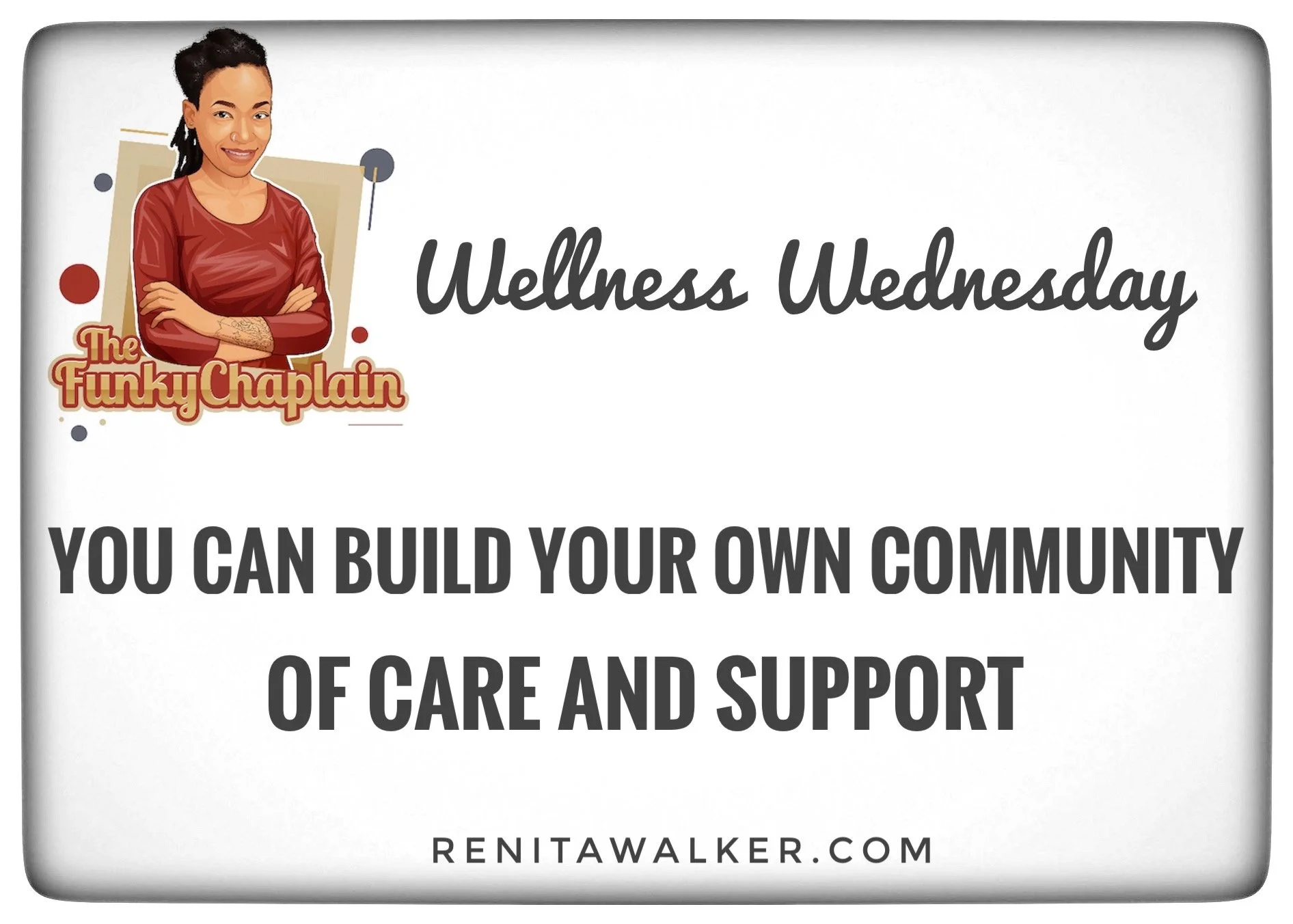Communities of Care and Support
Last week we talked about the importance of having a support system to turn to for connection to God, self, and the other. This week I want to focus on the connection to the other. I semi-jokingly say if we were meant to live alone we would hatch out of eggs in the forest perfectly suited for a solitary existence, but we don’t. We are born literally connected to another person, dependent on our mother’s life for our own. Then, especially in the United States, we get indoctrinated with the ideal of rugged individualism. Hopefully, as we learn and grow we start to question our indoctrination because of the truth in our midst.
There is no one on this earth who has achieved anything through rugged individualism. There is no cogent argument against this assertion; it is simply fact. Most of the 1% in the United States came into their money by generational wealth, i.e. the generation before them giving them a hand up to succeed. However, rugged individualism and bootstrap mentality is preached to the masses, perhaps because they know when the people come TOGETHER we are dangerous.
What if we could really see ourselves as an integral part of a community of care? When I was growing up in a Black church, during my formative years in the late 70s and 80s, we were a community of care and support. I remember the community taking care of each other. I gladly wore hand me down clothing from Moni G, a stylish, older teen church member (rest in heaven big sis). I remember casseroles trains when someone was sick, home visitations to care for the elderly, nursing home visits to care for the disabled; I saw a community of care and support at its best. And many other churches in the community did the same. Each person was an important part of the community and contributed what they could. It was socialism at its best.
Somewhere, the modern church has lost its way, holding theology and rhetoric as more important than the actual practice of care and support. There’s a saying, “People don’t care how much you know until they know how much you care.” People are hurting and in need and theology doesn’t fill their bellies or pay their bills. People are hurting and have found themselves more hurt by judgmental, exclusionary spaces. Nowadays, people (claiming traditional religious affiliation and those that don’t) are finding ways to build communities of care and support outside of traditional institutions and structures. And I for one am pleased!!!
I’m here to tell you, it is your responsibility and freedom to build the best support system for your needs and desires. It can look like anything! If you have a pretty strict religious background it may be difficult to think creatively about community, but you have the autonomy and agency to do it! Perhaps your Sunday brunch group is the group that helps you get through difficult times. Great! Perhaps AA is a community of care and support that helps you remain steady through life’s rough terrain. Awesome! Perhaps playing Bid Whist with your buddies every first Friday is the thing that gives you life when you’re feeling drained and nearly drowned.
Our communities of care and support can be as unique and varied as we are. What is most important is that we have people, places, and spaces that can adequately support us as we walk life’s journey. We aren’t meant to do life alone. We also aren’t meant to do life in places that make us feel judged, condemned, and excluded. So feel free to build a community of care and support that demonstrates, accepts, and validates the unique gift you are. And don’t forget to LEAN IN when life is rough.
If you need help evaluating or building a community of care and support, contact me below and let’s work together to make sure you are adequately supported.



